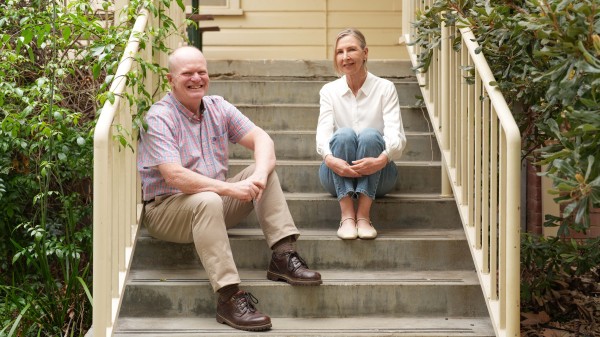Learning on country
Roxanne Jones is a Palawa woman, born and raised on Gubbi Gubbi land, and is in her second year doing field work for her Masters of Philosophy in Applied Epidemiology (MAE) at ANU.
Before coming to ANU, Roxy worked full-time as a paediatric intensive care nurse in Brisbane.
One feature of the MAE program is learning-by-doing. Roxy spends most of her time in the field and writing up her findings. By the end of this year she will have completed four research projects about how culture influences Aboriginal and Torres Strait Islander health and well-being.
Roxy has made two trips to Alice Springs, studying Indigenous rangers.
“They work and live on country. We wanted to see if there was a relationship between their culture and health outcomes.”
The study compared rangers to non-rangers and found that rangers had more than double the life-satisfaction of non-rangers.
“We think that is because in their everyday work they are connected to culture and they practice cultural activities all the time.”
Roxy recently returned from Wadeye, an Indigenous community in the Northern Territory, where she evaluated the Stronger Communities for Children initiative.
“I was particularly interested in the early childhood program. So I spent some time with the kids and the Aunties that teach that program.”
The program promotes increased cultural participation and engaging children at an early age. Roxy observed that much of what happened was embedded rather than planned.
“They collected wood to make a fire and make damper. To them, that wasn’t one of their learning outcomes, but that’s a very cultural kind of group activity to do. That was kind of a nothing activity for them. But for me, it was quite a significant thing.
“They spoke in language, so English for them is at least a second language. That’s normal for them, but in a lot of Australia, unfortunately, language has been lost.”
The Wadeye community had asked for help in evaluating their programs as part of a funding requirement, and also to better understand how culture relates to outcomes. On another trip to Wadeye, Roxy trained local residents in how to be community researchers.
“We can’t just keep going in to communities and doing surveys and then running away. The capacity-building is really important.
“We use community researchers in Alice Springs as well. And to be honest they’re much better at doing the job anyway because they have relationships with the people, and they can speak the language, and they’re trusted. So the answers that you actually get back are much more valid, I think, and much more complete than if us outsiders were just to go in.”
Also, she says, it is essential to return to each community, rather than visit once and expect to have an impact.
“You have to make this commitment to going back and building relationships. I think that is where sometimes health services go wrong, when there is continually new staff that don’t necessarily build those relationships with Community.”
Roxy’s background as a nurse in a children’s intensive care unit has informed her research.
“My background and health knowledge has to impact how I think about things sometimes.”
She continues, “Working as a nurse in such a specialised unit, I was always interested in the kids that came from Community. I wondered what services they had available. Could we have prevented this? Could there have been an early intervention so they wouldn’t have had to come to the ICU? All that kind of thing definitely plays on your mind.
“It’s complex. That’s one of the reasons I find it so interesting.”
Roxy received a full scholarship to undertake the MAE, funded in part by the Leonard Broom Endowment, which aims to give Indigenous Australians the opportunity to pursue health-oriented careers. Next year she hopes to continue at ANU, working towards a PhD.
Without the scholarship, she says, she would not have been able to attend ANU.
“Scholarships like this make a big difference for Aboriginal scholars. For me, for instance, I’m the first of my family to even complete high school, let alone go on to higher degrees. If we want to enable Aboriginal students to go into higher degrees, it’s really important to have scholarships available to them.
“It just breaks down one barrier, and sometimes that’s all you need to kind of push people in the right direction.”
If you would like to support Aboriginal and Torres Strait Islander scholars or support further advances in applied epidemiology, write to science.advancement@anu.edu.au, or call Claudia Santangelo at 02 6125 0864.








